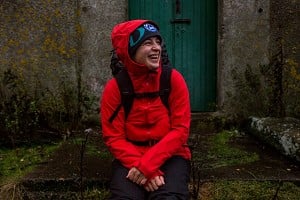
Comments made by Sir Chris Bonington pertaining to mountain rescue services recently made their way into articles in both The Times and The Telegraph, which he later wrote were taken out of context. Editor of Mountain Rescue magazine, Judy Whiteside, penned a personal blog post in which she addressed Chris' comments, misrepresentation in the media and the reality of life in a mountain rescue team. Judy has kindly allowed us to reproduce an updated version of her post below.
'Rival mountain rescue teams are competing to get to stranded climbers', said Sir Chris Bonington on Friday morning, according to both The Times and The Telegraph, adding that he considers mountain rescue 'a sport', in which the volunteers engage because they 'enjoy the thrill'.
None of these contests have 'quite got to fisticuffs', he said, despite getting 'quite heated'. Only a matter of time, we were led to suppose, before a fist fight erupts somewhere over which team gets to put the stretcher together in a howling gale, in pitch darkness, while the meal they left behind grows cold on the plate.
For a fleeting minute, I thought it a belated April Fool, lately discovered by some wag and posted online. But no. 'Hannah Furness, arts correspondent. Friday 13 October 2017. 9:32AM' runs the byline in The Telegraph, atop an article which does its level best to unravel the sustained effort over recent months – by rescue teams in the Lakes and North Wales especially – to stem the flow of 'avoidable' call-outs and encourage hillgoers to better prepare for their adventures.
Admittedly, Ms Furness redeems herself a little towards the end, by seeking the more measured view of Andy Simpson, press officer for mountain rescue in England and Wales. 'I would certainly never encourage anyone to deliberately put themselves at risk,' says Andy, 'or to go out ill-equipped believing it doesn't matter because they'll be rescued.
'We are always keen to help, but it's a serious business and we would always encourage people to be properly prepared.'
But still.
Sir Chris had been asked, at Cheltenham Literature Festival, for his thoughts about unprepared climbers and an alleged over-reliance on technology to get them rescued. At least the 'volunteer' message came through loud and clear, but why had he chosen to represent mountain rescue teams quite as he did?
A couple of days later, Sir Chris posted a welcome statement on his social media feeds – and spoke on BBC Radio Cumbria – explaining that his reported comments 'that mountain rescue had almost become a sport in itself and that teams from different valleys had competed to reach a casualty first' were light-hearted and reported out of context.
He went on to say that there are some serious issues that need considering when more people are clearly heading into the mountains with a lack of basic skills and sometimes inadequate clothing and equipment.
'As I have always done,' he concludes, 'I will continue to voice my strong admiration for, and offer my support to, those involved in mountain rescue'.
His words had struck a nerve.
Here was a highly-celebrated figure in the mountaineering world apparently suggesting that the whole thing is a game and it's okay to go out there and get yourself in trouble because, hey, there are whole teams of restless gladiators back at base, just kicking their heels and itching for the chance to swing a few punches!
Sir Chris walked a while with us, when my pal and I did the Coast to Coast, six years ago, raising funds along the way for mountain rescue. I interviewed him more recently, for my book about the Ogwen Valley team, Risking Life and Limb (I won an award you know!), where he recounted a tale of his 'almost rescue' as a much younger man, by the then fledgling team. He was even guest of honour at their 50th anniversary dinner. My understanding was that he's always been very supportive of mountain rescue.
So, whilst Sir Chris's comments were hugely disappointing, I had suspected – hoped – they were said with tongue firmly stuffed in cheek. Sadly, any humour he intended got lost in translation – and copy editors never could resist a provocative headline. It wouldn't be the first time the words of mountain rescue team spokesmen or women have been sensationalised or misquoted.
But what this whole media storm HAS done, is provide an opportunity to tell it like it really is, to set the record straight about the nature of mountain rescue, the teams and their members – every one a volunteer – from my own very passionate, personal perspective!
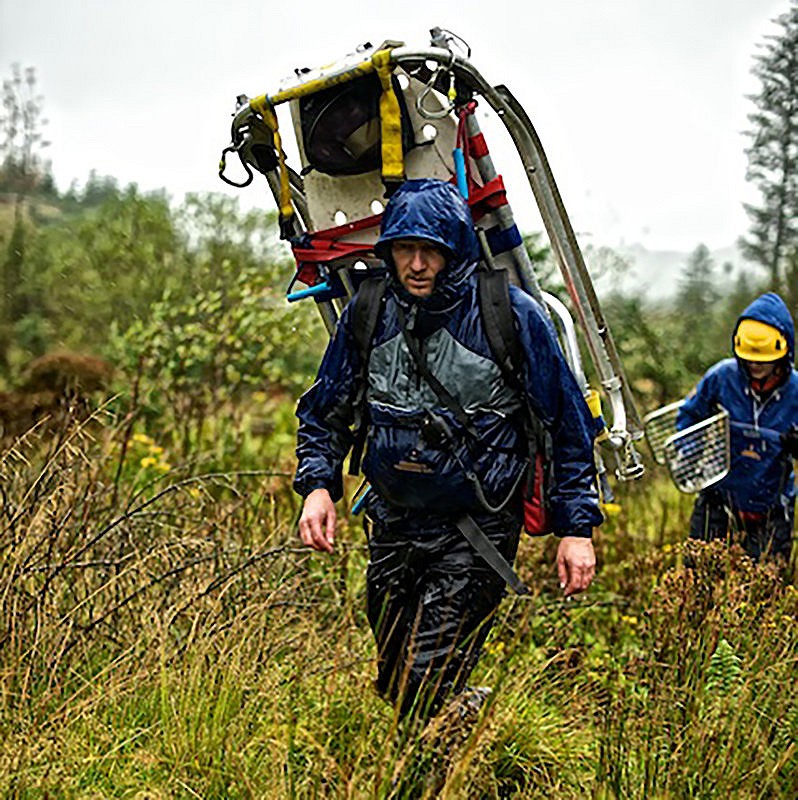
So if it's not a game, where's the fun in it?
'Is this characterisation fair?' asked a researcher from BBC Radio 4.
Good grief! Do they have to ask?
In a word. No!
Mountain rescue may be many things to many people.
To the casualty, it's that welcome flash of colour looming through the mist, pain relief, hope, the heroes who defied the weather and all other odds to get them to safety. Or keep them alive. It's the banter, the warmth, the voices of reassurance, the calm efficiency, the professionalism.
To those involved in it, mountain rescue can become a life-long commitment, an all-consuming 'hobby', a near full-time occupation, the opportunity to put something back and be part of something uniquely bonding.
It's also humbling, challenging, exhilarating and scary at times, blackly funny, hugely uplifting, life-affirming, soaked-to-the-skin-wet, bone chillingly cold, up to the ankles in sheep shit and peat bog, beyond exhausting. High risk, endlessly fascinating and sometimes frustrating. And delivered free, of course, to those who need it.
Mountain rescuers can be many things too. Fiercely independent, strongly opinionated, skilled mountaineers and canny navigators who don't see themselves as 'heroes', confident, compassionate and committed (not least to the growing requirement to train to ever-higher standards, for an ever-widening menu of services), and athletically fit (you try running up and down the same mountain three times in one day with a load of kit strapped to your back).
Perpetually grumpy, particularly when tired (or in possession of a pint), generally good company and just a little eccentric. Oh, and frequently smelly (sheep shit and peat bog, remember).
Yes, they love what they do (why do it otherwise?), but gladiatorial in nature they most definitely are not. At least, not when it matters, when someone needs their help.
Sure, there might be a bit of cross-team banter but teams increasingly work together on rescue operations, not in competition.
And then there's the families and friends of Sir Chris's 'thrill-seeking gladiators'. Kid's birthdays, anniversaries, wedding parties, holiday flights, work commitments, trips to the climbing wall, grocery shopping, ceiling painting, gardening chores, visits from the in-laws – very little is sacred, believe me. Anything and everything can be cancelled at the sniff of a call-out. Including a decent night's sleep. Many a marriage has floundered thanks to mountain rescue.
And all for what? A few rounds of fisticuffs?
Wild in the country
Sir Chris also firmly believes that people should be free to explore the wilds, learning 'on the hoof' as he did. I don't think anyone in mountain rescue would disagree with that sentiment but there's no disputing that the world has changed.
Once upon a time, there was self-reliance, inner strength, personal responsibility and the acceptance that if you got yourself into a tricky situation, you quite possibly had to get yourself out of it. Or die.
Now we have smartphones and apps lulling aspirant hillgoers into a false sense of security and apocryphal tales of walkers who think it appropriate to call for a helicopter because they're late for dinner or forgot their butties, calls which might just prevent a real casualty from receiving timely help.
In Snowdonia and on Scafell, we have the never-ending stream of Three Peakers and charity challengers, testing their mettle against the elements – often ill-prepared, inadequately dressed and with barely any mountain experience.
Last month, a young man attempted to climb Snowdon in his underpants to raise funds for a dementia charity after his grandmother developed the condition. Commendable and heart-felt but he was totally unprepared for just 'how cold' he would feel. By the time he reached the summit, he was shaking uncontrollably, feeling sick, going deaf and his eyesight was 'going funny'. Llanberis MRT and paramedics treated him for hypothermia before he descended the mountain on the train, wrapped in tin foil.
Meanwhile, in the Lakes, a '100% avoidable' incident saw Patterdale team members called away from their own dinners only to find the 999 caller tucking into a meal and a glass of wine at the pub. It transpired that the four reported missing were part of a much larger group of 76 and – worse still – their 'organiser' was safely tucked up back in his accommodation, oblivious to the whereabouts of the remaining 71!
Incidents can keep team members on the hill – away from their own lives – for many, many hours at a time. Often, this is due to the logistics and time involved, getting to a casualty, treating them and then evacuating them from the mountain in timely fashion, but sometimes there are multiple casualties, or three or four incidents in quick succession.
Helicopter help may not always be an option – and without the helicopter, it's down to the muscle power available to carry that casualty downhill. Through the bracken and peat bog. And sheep poo.
And, once the casualty has been safely delivered into the hands of the medics, it's back to base for another hour or more, cleaning and sorting kit, washing down vehicles, restocking medical sacks, checking oxygen and Entonox cylinders, writing reports, making ready for the next call – and possibly, too, dealing with the anxious friends and family of the casualty.
Then there's multi-agency incidents like floods or murderous gunmen on the loose or missing children – none of which is likely to inspire a punch-up, more a calm determination to get the job done, as efficiently as is humanly possible. And stay safe.
Why then, if not for the fisticuffs?
Asked for his opinion on the matter (one that I can publish), the Gremlin (who, if you haven't yet fathomed, is my other half and a long-serving member of Cockermouth MRT), offered that he 'would much rather be out climbing than out rescuing people' – which seems a little at odds with the fact he's off like a whippet at the ping of an SMS, usually with a beaming smile on his face and a not entirely convincing 'Sorry, I've got to go'. (I say 'ping', it's a little noisier and considerably more insistent in nature than that.)
It's a sentiment I found expressed online by his mountain rescue colleagues around England and Wales – and doubtless echoed in Scotland – usually accompanied by an appropriately devilish emoticon. Just so you know there's a wry smile on their lips. That humour again! Tsk.
Why does he bother at all then, I ask?
And then begins a story not dissimilar to every other rescuer I've ever chatted to: an initial involvement with an emergency situation, the desire to learn how to help next time, a developing interest in climbing, the fact that mountain rescue was traditionally climbers and mountaineers rescuing fellow climbers and mountaineers, then joining a team because that's where his mates were and that oft-cited desire to 'put something back'.
From there a deepening commitment thanks to deputy leadership, a seat round various committee tables, meetings and more meetings, tasks to complete and a mountain of paperwork to scale, and a deep reluctance to let others down – casualties or colleagues.
Like the rest of his team mates, he quite clearly enjoys what he does, enjoys the camaraderie, the banter, being out there in the mountains, the satisfaction of doing the job well. But nobody doubts that this is very serious business. People's lives and future wellbeing are at stake.
Once mountain rescue has you in its grasp, its hard to shake off. It becomes a way of life, inspiring a selfless commitment which is rare in today's society.
Bar-room banter is one thing but, trust me, when the boys and girls racing up the hill in the sleeting rain and biting wind, with the half stretchers and the medical sacks and the oxygen cylinders strapped to their backs, get to the casualty site – all the while barking into their radios and trying to ignore the nagging hunger pangs – the last thing on their minds is whether they've beaten the 'other side' to it.
Footnote: Thank you to Paul Burke (Langdale Ambleside MRT), Michael Lishman and Karen Phillips-Craig (Penrith MRT) for their images.
- OPINION: When Should Mountain Rescue Refuse a Call-Out? 19 Jul, 2018
- SKILLS: Using SARLOC for Rescue on your Smartphone 13 Jun, 2018

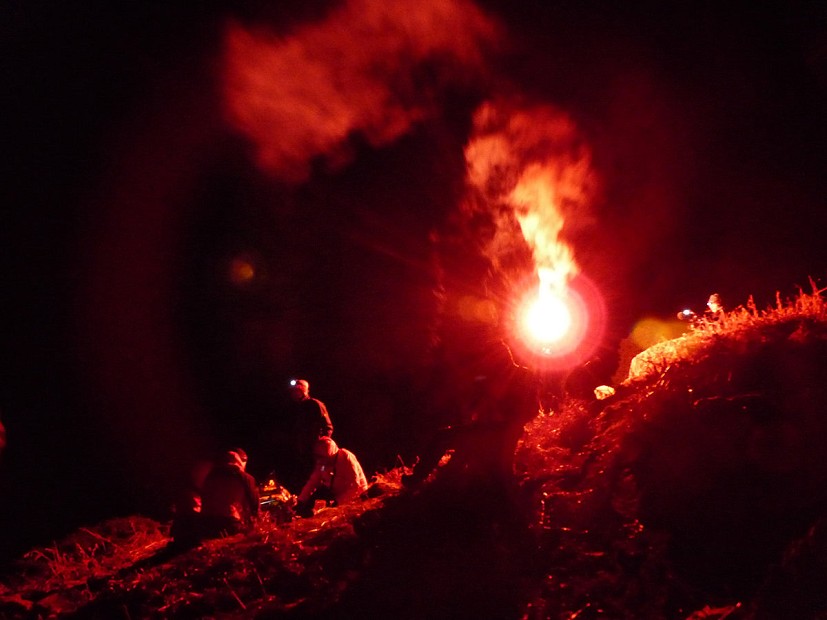
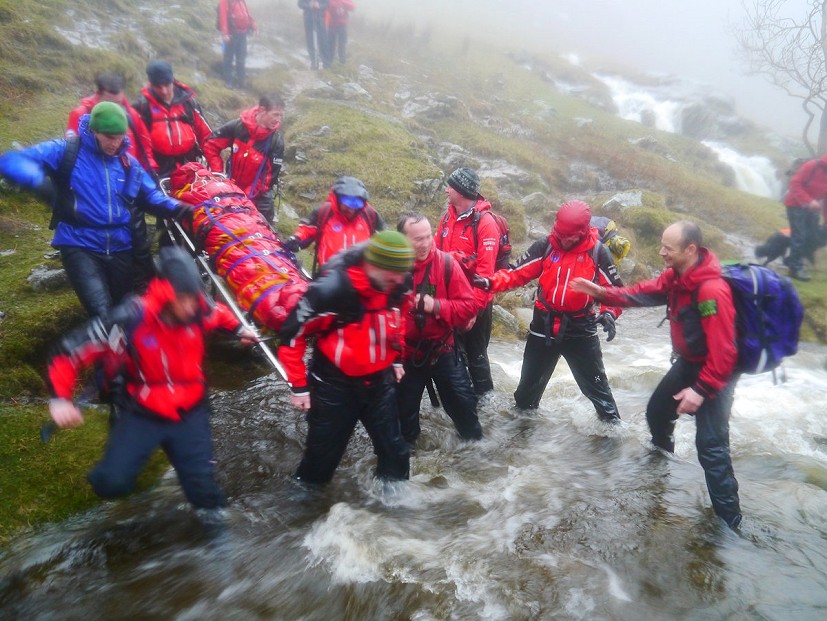
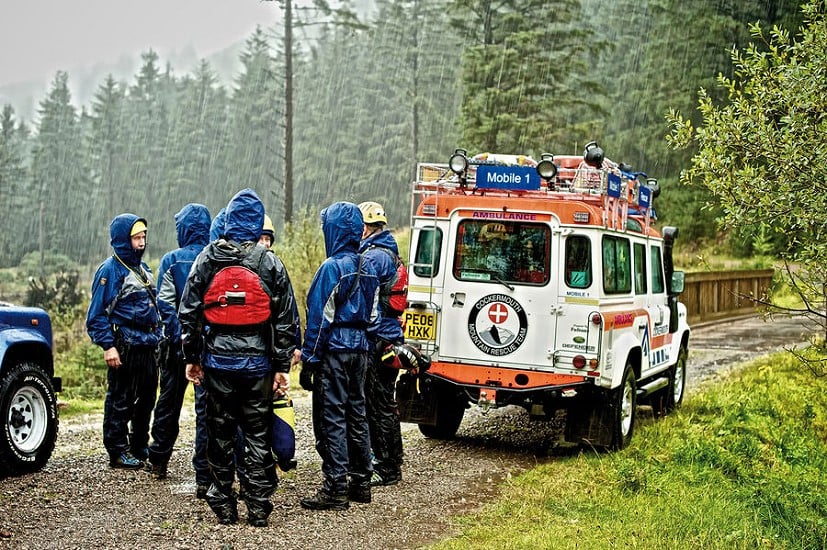
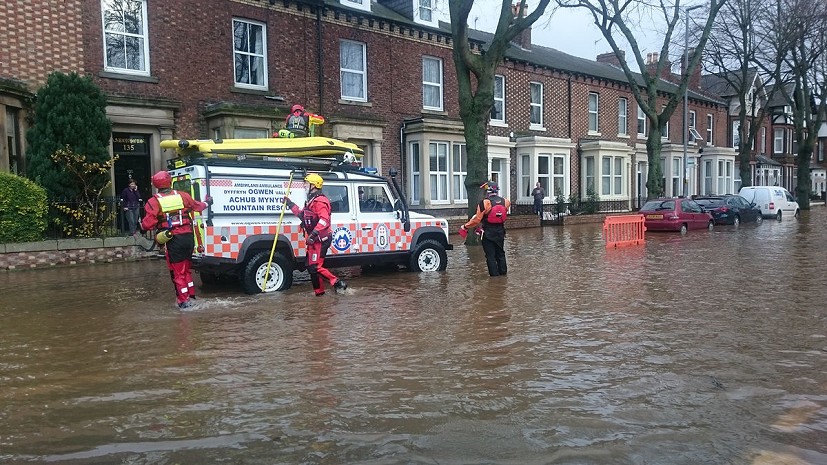
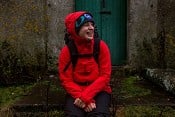
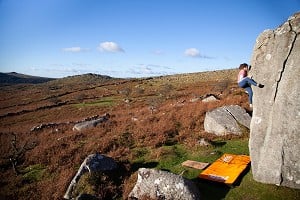
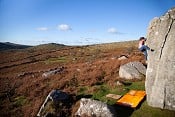
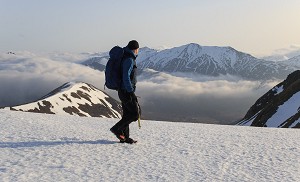
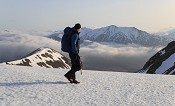
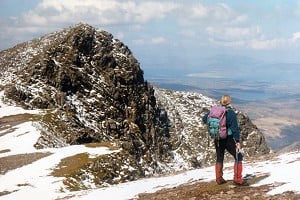
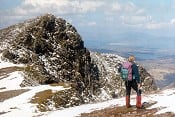


Comments